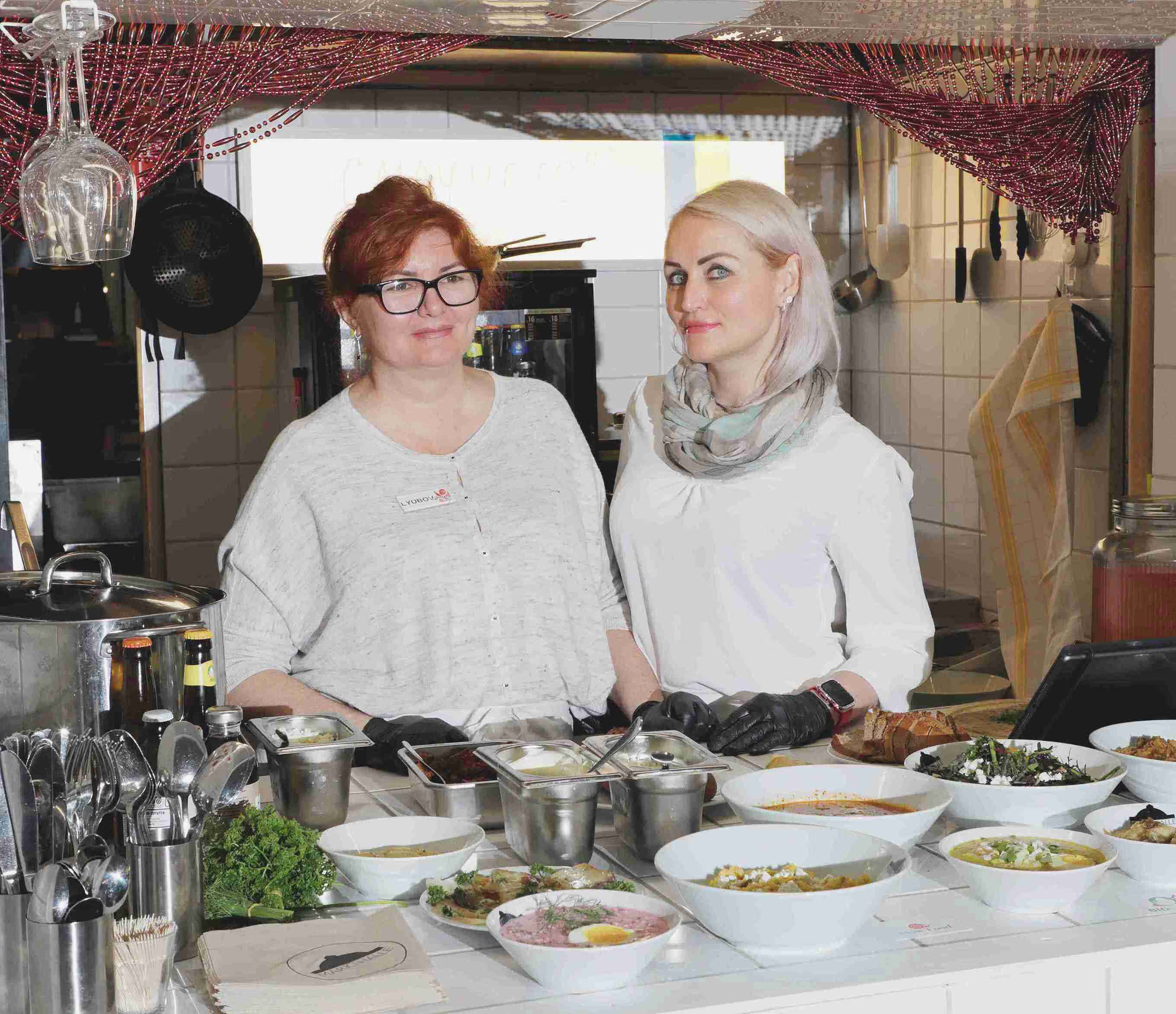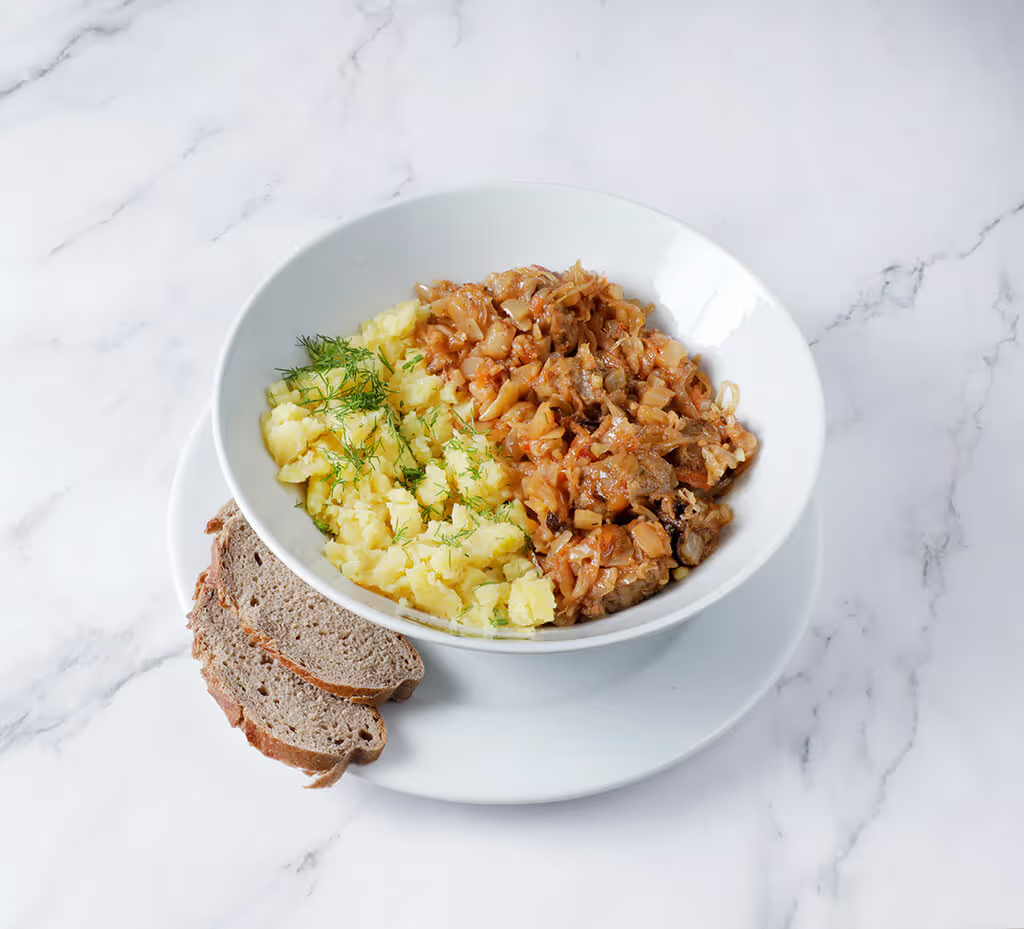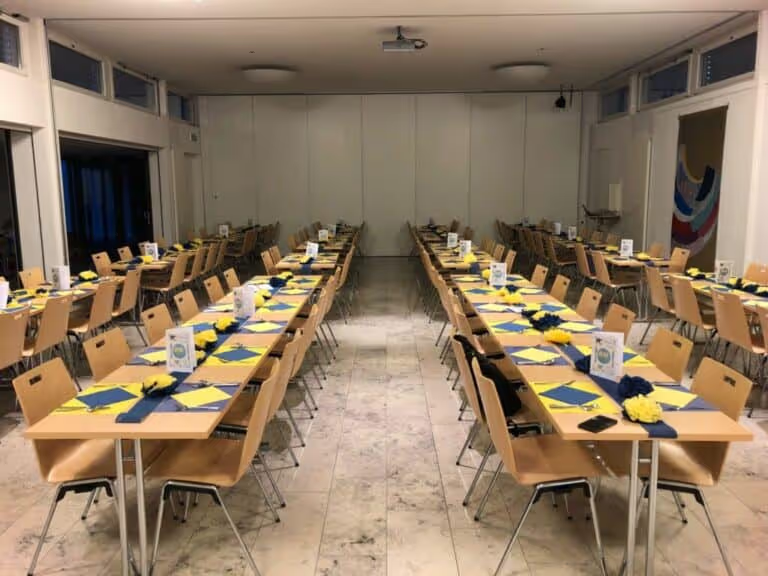Meet the Women Behind the Best Ukrainian Food in Basel

Meet the Chefs of Kozak Buvette
A Taste of Home in Basel
If you’re looking to eat something truly memorable, something handmade, heartfelt, and full of culinary diversity, you’ll find it at Viaduktstrasse 10 in Basel.
There, nestled in the bustling Markthalle, is Kozak Buvette—a tiny restaurant with a big heart, where the aroma of traditional Ukrainian dishes like borscht and stuffed cabbage rolls greets you like an old friend.
It’s one of the few places offering Ukrainian food in Basel, using regional organic products and fresh ingredients sourced with care. More than just a spot to order food, it’s a kitchen built on memories, community, and the desire to share what’s most meaningful—food as culture, comfort, and connection.
From the moment you glance at the menu items, you’ll discover a rich tapestry of Ukrainian specialties—each plate telling a story from the East, made with regional ingredients and served with the kind of warmth that feels like family.
.avif)
A Journey of Change and Resilience
Tetjana arrived in Switzerland three years before the war escalated.
“I had other plans,” she recalls. “I was initially thinking about moving to Poland, but I came to Switzerland instead.”
Her background was in banking, hotel management, and marketing—worlds away from professional cooking. But life, as it often does, redrew her path.
“I started at Kozak Buvette, partially working, learning traditional Ukrainian recipes, and now I work full-time as a chef. It’s a small business, so we all do everything—from cooking to selling to making sure everything runs smoothly.”
Svetlana’s journey is marked by a similar twist of fate. She came from Kyiv and has now spent three years in Switzerland.
“I’ve been working at Kozak Buvette for one year, cooking and selling food two days a week while also training at another restaurant.”
She remembers how it felt in the early days—how unfamiliar Ukrainian food was to the locals.
“When we started, Ukrainian food was not well known. We had to explain our dishes and introduce people to our traditions. But now, people come from all over—Bern, Poland, Slovakia, Canada—because they want to try Ukrainian food.”
Ukrainian Cuisine: A Taste of Home and Togetherness
Ask them what Ukrainian cuisine means, and the answer isn’t just about ingredients.
“When I think of Ukrainian food, I think of family gatherings,” says Svetlana. “It’s impossible to have just two dishes on a holiday table—there must be 15 or 20. Cooking is a way of showing love, of welcoming guests. It’s about sharing.”
Tetjana echoes the feeling. “For Ukrainians, food is a connection to home. Kozak Buvette is like a small island of Ukrainian culture here in Basel. Many Ukrainians who didn’t know about us pass by and say, ‘Wow, it tastes just like my grandma’s!’ It reminds them of their roots.”
The food they prepare is not only made with care—it’s tied to the land itself.
“It’s about the land, the soil, the fields,” Svetlana adds. “Food is not just nourishment—it’s a memory, a story, a piece of where we come from.”
Looking to the Future
Even in a small kitchen, big dreams simmer.
“We want to open another location, bring Ukrainian food to even more people,” says Tetjana. “More productivity, more food, a stronger team—these are our goals.”
Each dish served brings them closer to that vision, one lovingly folded dumpling at a time.
What Do You Miss Most About Ukraine?
Tetjana: “Parents, family, sisters. Every day, we prepare Ukrainian food, so I don’t miss it in the same way as others. But many people come to eat with us and say, ‘Oh, pelmeni! Oh, borscht! It feels like my mother’s cooking.’ They leave reviews saying, ‘I felt at home.’ That’s touching. Ukrainian dishes are not necessarily too complex, but they require careful preparation and fresh ingredients. They take time, but we love cooking them.”
.avif)
Favorite Dish on the Menu?
Tetjana: “For me, it’s cabbage rolls. As a child, I didn’t like them, but as I grew, my taste changed. Now I love them, especially with beef. They should be small, almost like Arabic mansaf, and handmade. It’s a dish we make for special occasions on request.”
Svetlana: “I also love borscht, dumplings, and pancakes with jam because I have a sweet tooth. And I also enjoy the vinaigrette salad—it’s bright, colorful, like confetti.”
The Impact of Using Local, Organic Ingredients
Tetjana: “It makes a big difference. We work with fresh, natural products—like the meat we get from local farmers. It reminds me of my grandfather’s farm in Ukraine, where food tasted real, not like supermarket products. The sour cream we use is natural, and customers feel good after eating here. Many of our guests have allergies or sensitive stomachs, and they tell us, ‘Everything was perfect. I felt great after eating here.’ If food contains chemicals, people notice. I do, too—I have a sensitive stomach, and I appreciate this quality.”
She added: “In Switzerland, organic food is part of a larger lifestyle. People care about their health, do sports, hike in the mountains, and breathe fresh air. The way they eat is part of that philosophy.”
Slow Food Movement and Ethical Cooking
Tetjana: “Slow food is about eating consciously, appreciating what’s on the plate, and valuing healthy, well-made meals. I once attended a gathering where people shared their experiences with slow food. Some even ate flowers from the table because they were fresh and natural from the garden!”
She added: “At Kozak Buvette, we are proud to follow the ‘slow food’ principles, using organic, handmade, and locally sourced ingredients. More businesses should adopt this philosophy, but it’s not easy for large-scale restaurants. Handmade food takes time and effort—it’s not like making fast food or mass-produced meals. But I believe that year by year, people care more about health, and this approach will become even more relevant.”
Ukrainian Cuisine and Its Deep Roots
Svetlana: “Ukrainian cuisine is deeply tied to home and family. The main feature of our food culture is hospitality—giving more than the guest expects, making them feel welcome and cared for. Traditionally, Ukrainian cooking has always relied on farm-fresh products, long before ‘organic’ became a trend. It’s a cuisine from the garden, not from the supermarket. Unfortunately, due to the war, many people now rely on supermarket food, but the essence of Ukrainian cooking remains homegrown and homemade.”
The Ukrainian Community in Switzerland
Tetjana: “Many Ukrainians visit us—those who have lived in Switzerland for years, those married to Swiss citizens, and those who arrived more recently. But newcomers often don’t have the money to eat out, so they cook at home. Our core guests are those who have settled here and have a stable life—about 30% of our customers are Ukrainian, and 70% are from other backgrounds. Swiss people especially love our borscht and warm dishes.”
.avif)
The Future of Ethical Eating
Svetlana: “People are becoming more conscious of what they eat. They realize that supermarket food isn’t always good, and they start looking for healthier, more natural alternatives. Many of our guests care about where their food comes from and how it’s made. In Ukraine, life is harder, food quality is often lower, and people don’t live as long. But in Switzerland, an 85-year-old is still considered young. It makes a difference.”
It was a joy to speak with the women who bring Kozak Buvette to life—two chefs whose kitchen turns memories into meals, and meals into moments.
With each lovingly prepared plate, Tetjana and Svetlana show that food is more than flavor—it’s culture, history, and resilience. Whether you're new to Ukrainian dishes or craving the comfort of home, this is a place where you’ll find soul in every spoonful, and something beautiful on every table.
Located at Viaduktstrasse 10, Kozak Buvette is open Monday to Saturday from 11:30 to 14:00 and 18:00 to 22:0. It’s the perfect spot to eat, discover Ukrainian food in Basel, and enjoy the warmth of a kitchen where every detail matters—from regional organic products to handmade traditional dishes.
Here, every bite has a story, and everyone has a seat at the table.


.avif)
